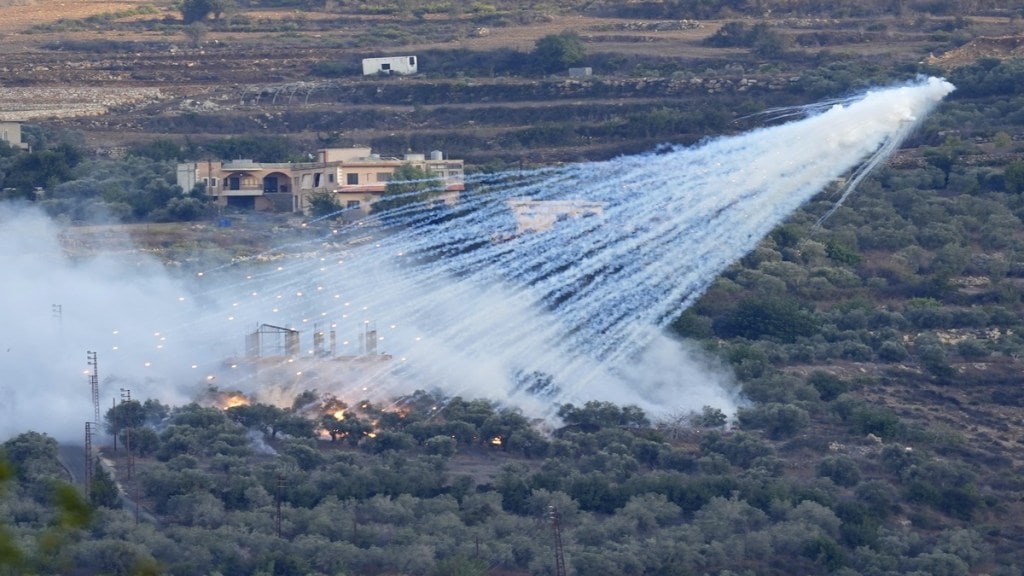Israel on Sunday launched fresh airstrikes on southern Gaza and announced plans to escalate attacks in the northern part of the enclave. Meanwhile, the United States pledged to deliver additional aid to Palestinians who are currently facing severe shortages of basic and essential supplies like food, water, medicines, and fuel.
Before the overnight strikes, Israeli military spokesperson Rear Admiral Daniel Hagari had urged the residents of Gaza to move south to safer areas. “For your own safety, move southward. We will continue our attacks in the Gaza City area and increase our offensive,” Hagari said.
According to Palestinian media reports, at least 11 Palestinians lost their lives in an Israeli airstrike in the southern Gaza city of Khan Younis. The reports also indicated that Israel was also targeting the southern city of Rafah.
20-truck humanitarion aid convoy for Gaza
The first humanitarian aid convoy was allowed to enter the besieged Gaza Strip on Saturday since the conflict began. This convoy, consisting of 20 trucks, carried life-saving supplies and was received by the Palestinian Red Crescent. However, the United Nations’ Humanitarian Office (OCHA) noted that the volume of goods delivered represented only about 4% of the daily average of imports into Gaza before the hostilities began. It fell short of the requirements to address the needs of around 2.3 million people living in the enclave after 13 days of a siege.
US President Joe Biden, a long-standing supporter of Israel, expressed relief at the arrival of this aid after days of intense negotiations. He affirmed the commitment of the United States to facilitate additional assistance through the Rafah border crossing, stating, “We will continue to work with all parties.”
Staying true to the word, the United States on Saturday also put forth a draft resolution to the United Nations Security Council, affirming Israel’s right to self-defense and demanding that Iran cease exporting arms to “militias and terrorist groups threatening peace and security across the region.”
Israel initiated a “total siege” of Gaza following a cross-border attack on southern Israel by Hamas militants on October 7. This attack resulted in the tragic loss of 1,400 lives, primarily civilians, and deeply affected Israel.
The Gaza Health Ministry reported on Saturday that Israel’s air and missile strikes in response had claimed the lives of at least 4,385 Palestinians, including hundreds of children, with over a million people in the territory displaced.
In a display of solidarity, around 100,000 people gathered in central London on Saturday for a pro-Palestinian demonstration, calling for an immediate ceasefire in Gaza.
Possible Ground Invasion
With concerns of a possible ground invasion, Israel has assembled tanks and troops near the fenced border surrounding the narrow coastal enclave. The report suggests that the objective is to incapacitate Hamas, following a series of inconclusive wars dating back to the group’s rise to power in 2007.
In a video distributed by the Israeli military on Saturday, Chief of Staff Lieutenant General Herzi Halevi stated that they are going into the Gaza Strip to dismantle Hamas operations and infrastructure. Israeli troops conducted live-fire drills as part of preparations for the next stage of the conflict, as revealed in footage released by the Israeli army on Saturday.
Hamas responded by launching rockets towards Tel Aviv in reaction to Israeli airstrikes, the report said. Gaza’s Health Ministry and Hamas media reported that these strikes led to the loss of at least 50 lives and left dozens injured.
Word of caution for Lebanon
Amid growing international concerns that the conflict could escalate into a regional war, US Secretary of State Antony Blinken cautioned Lebanon’s caretaker Prime Minister Najib Mikati, that Lebanese people would be impacted if their country became involved.
Israel had earlier on Saturday confirmed that its aircraft had struck Hezbollah targets in Lebanon, resulting in one of its soldiers being hit by an anti-tank missile. The Iran-backed group claimed that the exchange killed six of its fighters.
In a separate incident, Israeli aircraft targeted a compound near a mosque in the Jenin refugee camp in the occupied West Bank early on Sunday. The Israeli military asserted that the site was being used by militants to plan attacks. Palestinian medics reported at least one fatality.
Since the October 7 Hamas attack, clashes with Israeli forces in the West Bank have resulted in the loss of at least 84 Palestinian lives, according to Palestinian officials.
(With Reuters Inputs)
